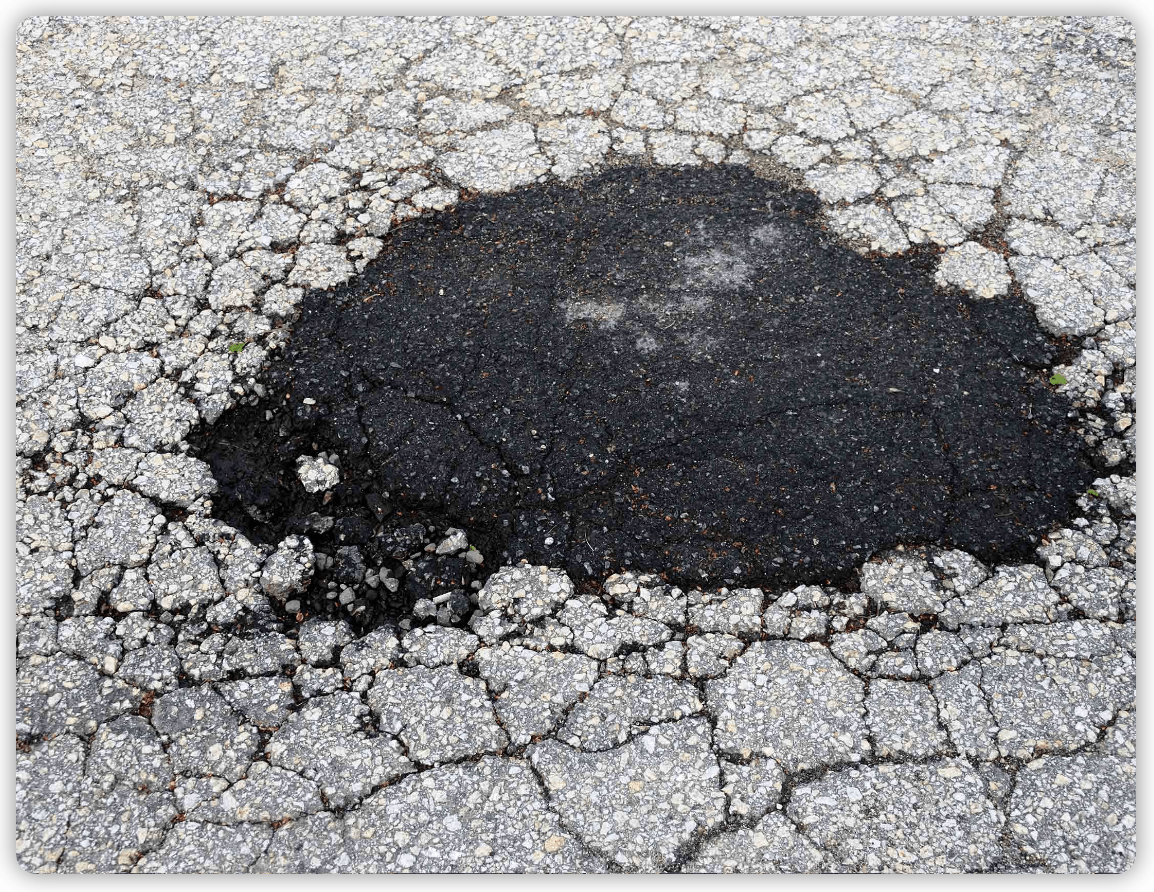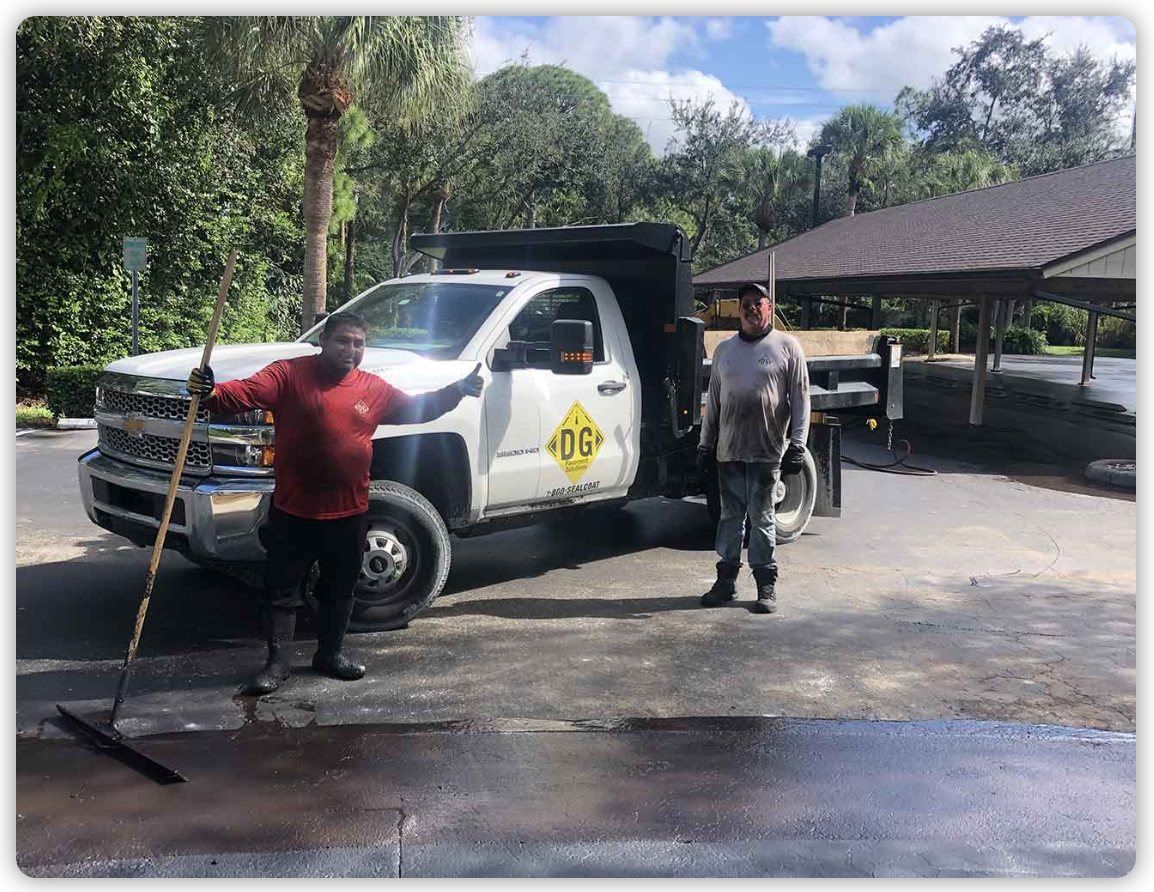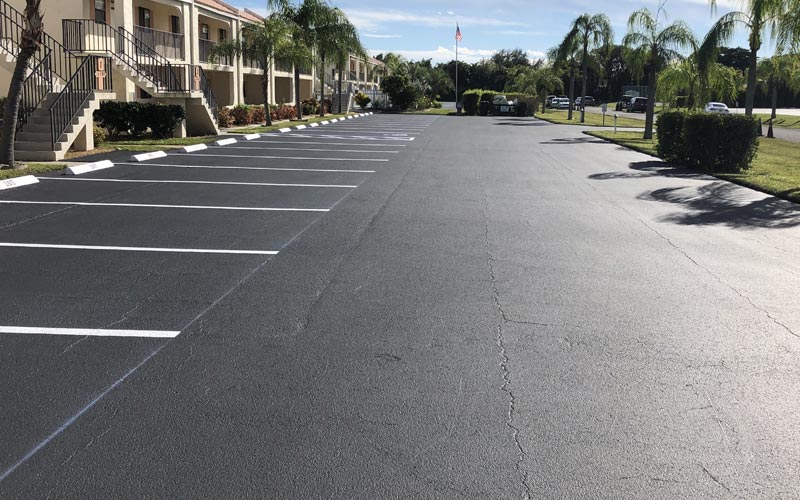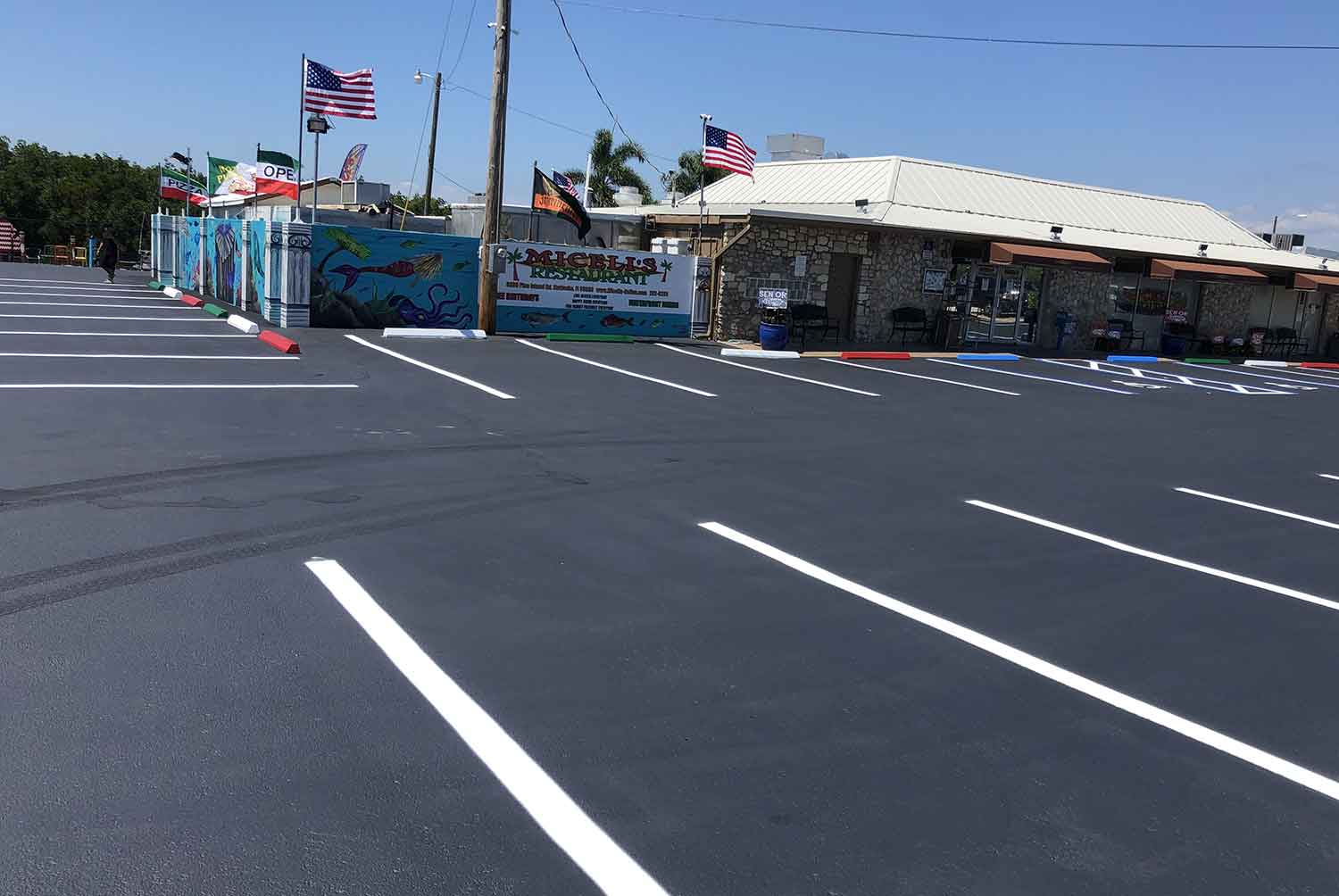Asphalt & Elements: What Can Rain Do To Asphalt Paving?

Scheduling asphalt paving projects can be tricky –Does the job have a finished date in the work contract? One thing is for certain, we can’t control the weather. If you want to start the task with a trained professional, asphalt paving depends a lot on weather conditions and temperatures. The material doesn’t stand alone when it comes to these factors, even after it’s been laid down. From season to season in Southwest Florida, you want your tarmac to look good, durable and new.
Rain can be the enemy because it puts any construction plans on hold and will extend the completion date. Not only that, a newly paved asphalt surface (parking lot or residential driveway) that was cemented months ago are open to severe damage during heavy rainfall or destructive weather conditions.
In general, asphalt can’t be installed when it’s raining –Coordinate a good time before summer time approaches! If asphalt is laid out during a rain shower of any kind, or even immediately after, it will change it. Most of the time, you need to wait a few days for the ground around the project to dry out before a professional begins the paving process. This is simply because asphalt mixtures contain oil, and oil and water react harmfully in this case. When water hits fresh tarmac, it causes the oil to rise to the surface which can affect the drying time and the overall completed look, as well as the quality of the asphalt. Rain also jeopardizes the strength of the subsoil. If the soil is wet, it turns soft and this makes it a poor surface to pave on, which will put a hold on the project time. Experts need a strong, steady surface before installing blacktop on a driveway, road or commercial parking lot.
There are two key issues with installing asphalt pavement in the rain. First off, rain will make it dry faster as it hits the top coat. It will also speed up the cooling process if the foundation is soaking wet. This specific detail can cause steam to form between the asphalt and the foundation, compromising the mechanism. Secondly, the asphalt must be compacted properly to form a tough bond. It is more complicated to achieve enough compaction in the rain.
If your blacktop is already completed, what should you do to prevent rain from future damage? You can take a few steps to minimize the cause it has on pavement. Fill and repair tiny cracks in a timely manner, seal your asphalt to keep it “waterproof”, rotate the location of where you park your car, and clean any chemical spills to prevent premature aging. You can always reschedule due to weather circumstances, but contact your contractor and get the job started!
(239) 267-1711
www.fortmyerssealcoat.com




